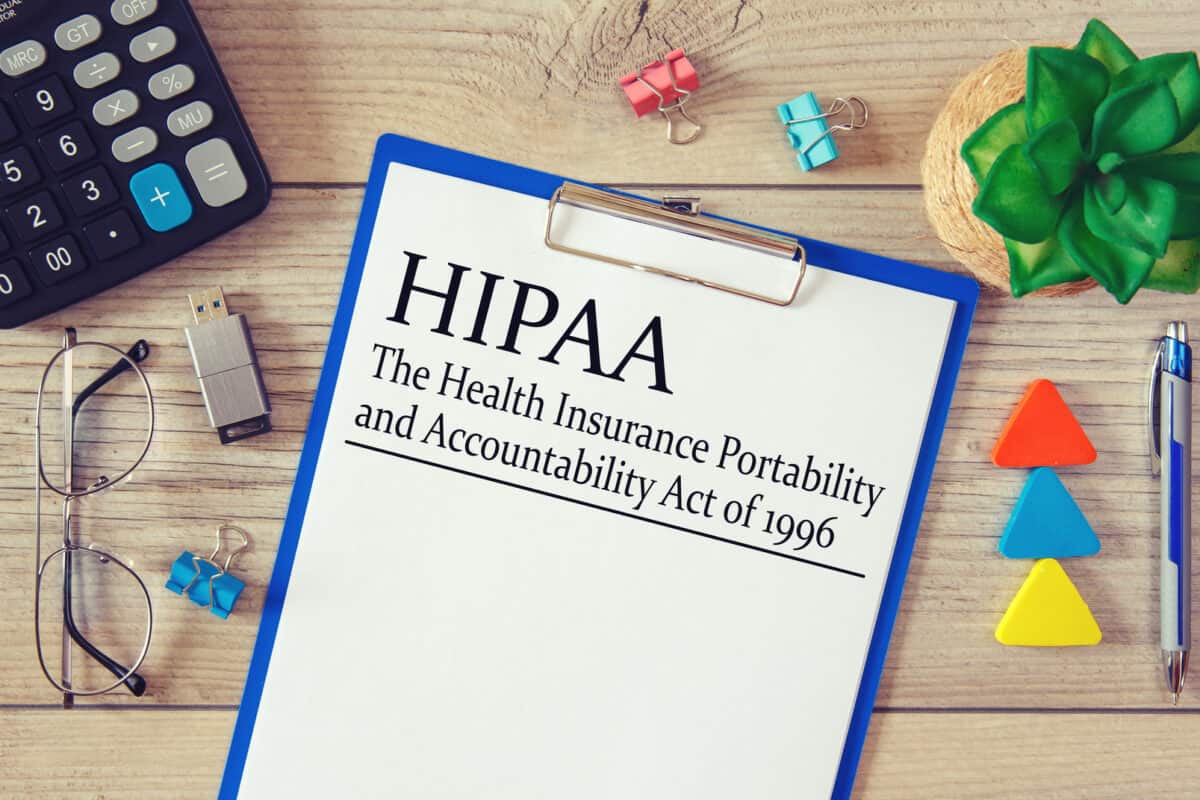The modern-day consumer is highly concerned with the security of their data, especially considering that cybercriminals can easily use this data to commit fraud or identity theft. If your organization goes through a data breach, the chances are that your reputation will take a big hit, and you might have to face huge financial losses. For organizations in the healthcare industry, a data breach will lead to hefty fines for violating the HIPAA.
Sadly, cyber breaches are barely going to stop anytime soon. 83% of surveyed healthcare organizations pointed out that they observed a significant increase in cyber-attacks within the last 12 months alone. By complying with the HIPAA, you can not only avoid costly lawsuits but also improve and maintain your organization’s data security. All it takes is the right steps.
Here are the penalties for non-compliance and some of the best ways to avoid violations and HIPAA lawsuits:
Penalties For HIPAA Non-Compliance
HIPAA compliance violations are typically quite costly, and the fines will depend on the number of affected data records as well as the level of negligence. There are four fine levels, which include:
- The first tier- this is whereby the covered entity did not know of the violations and had no possible way to know it existed. For such violations, your business could attract between $100 and $50,000 per incident, with a ceiling of $25,000 per year.
- The second tier- if the covered entity knew about the violation, or could have exercised due diligence to identify it, but didn’t, they will be fined under this tier. Such businesses have to have acted under unwilling neglect. Such a violation attracts a fine of between $1,000 and $50,000, with a ceiling of $100,000 per year.
- The third tier- this tier is for organizations that might have acted with willful neglect but worked to correct the issue within 30 days. The resulting fines are between $10,000 and $50,000 per incident, with a ceiling of $250,000.
- The fourth tier- this tier is for healthcare organizations that acted with willful neglect and didn’t make timely corrections. This will attract a fine of $50,000 per incident with a ceiling of $1.5 million.
In some cases, violations also attract civil lawsuits and jail time for organization members who are at fault for the violations. The OCR (Office for Civil Rights) deals with the HIPAA violations reporting, and enforces compliance through investigating complaints, conducting compliance audits, and offering outreach and education about the different rules under the HIPAA. For any HIPAA violation determined by the OCR, it will work to resolve the issue within 30 days through its own corrective action, the voluntary compliance of the covered entity, or an agreement between the covered entity and the agency.
Four Ways To Avoid Violating The HIPAA
1. Train Employees On HIPAA Compliance
Your HIPAA compliance status will only be as good as how well your employees understand the regulation. It might only take a single mistake from an employee to violate the rule. Take your time to educate current and new employees on the ins and outs of the regulation, including any new changes to the rules.
You should also take your time to answer key questions that they may have to ensure that they are comfortable with the compliance requirements. Alternatively, if you use HIPAA security software, you can rely on their training courses and seminars to help spearhead your training sessions. Educating your workforce will take time, but their knowledge is your best asset when it comes to maintaining compliance.
2. Be Mindful With Mobile Device Security
Modern devices like laptops and smartphones have made the communication of healthcare information easy. It is also possible to store patient health information and use it on the go. The downside is that it only takes losing such a device for you to violate the HIPAA. In some cases, simply leaving a device unlocked could result in unauthorized people seeing the information stored in the devices.
Ideally, you need to train employees on password management. They should also be quite mindful of where they leave their devices to avoid having people snoop on the information on them or steal them. While texting is an easy way to send patient information, it exposes their data to the risk of a breach. You should consider using programs that encrypt patients’ information while it is being shared between colleagues.
3. Watch Where You Store Your Health Record
Dealing with both paper and electronic files is a tricky business. Either saving files in the wrong computer file or misplacing patient’s paperwork could easily escalate into a HIPAA violation. These cases can easily turn into a reality, especially if employees file this information while distracted. It is wise to constantly remind employees of the need to double-check that they have saved and stored files in the right locations.
This will also apply to the proper disposal of paper files. You might be in violation if an employee forgets to shred paper records before throwing them in the trash. Going fully paperless is the best way to circumvent this risk.
4. Have Vendors Sign A Business Associate Agreement
As long as a vendor you work with handles some part of the PHI you control, you should ensure that they are abiding by the HIPAA guidelines. Businesses or individuals that aren’t considered as covered entities but still interact with PHI as part of their service package to a covered entity are referred to as business associates. Your business associates could include accountant, cloud vendors, marketing agency, and software companies. Having them sign a business associate agreement will further protect your patients’ data while it is in their hands.
The HIPAA aims at protecting the interests of all parties that interact with PHI. While patients can enjoy data security privacy, businesses can ensure their sustainability by keeping data breaches at bay and avoid the repercussions. Follow the steps above to avoid violating the HIPAA as an organization.
This article has been sponsored by Local SEO Guide
Digital Health Buzz!
Digital Health Buzz! aims to be the destination of choice when it comes to what’s happening in the digital health world. We are not about news and views, but informative articles and thoughts to apply in your business.


